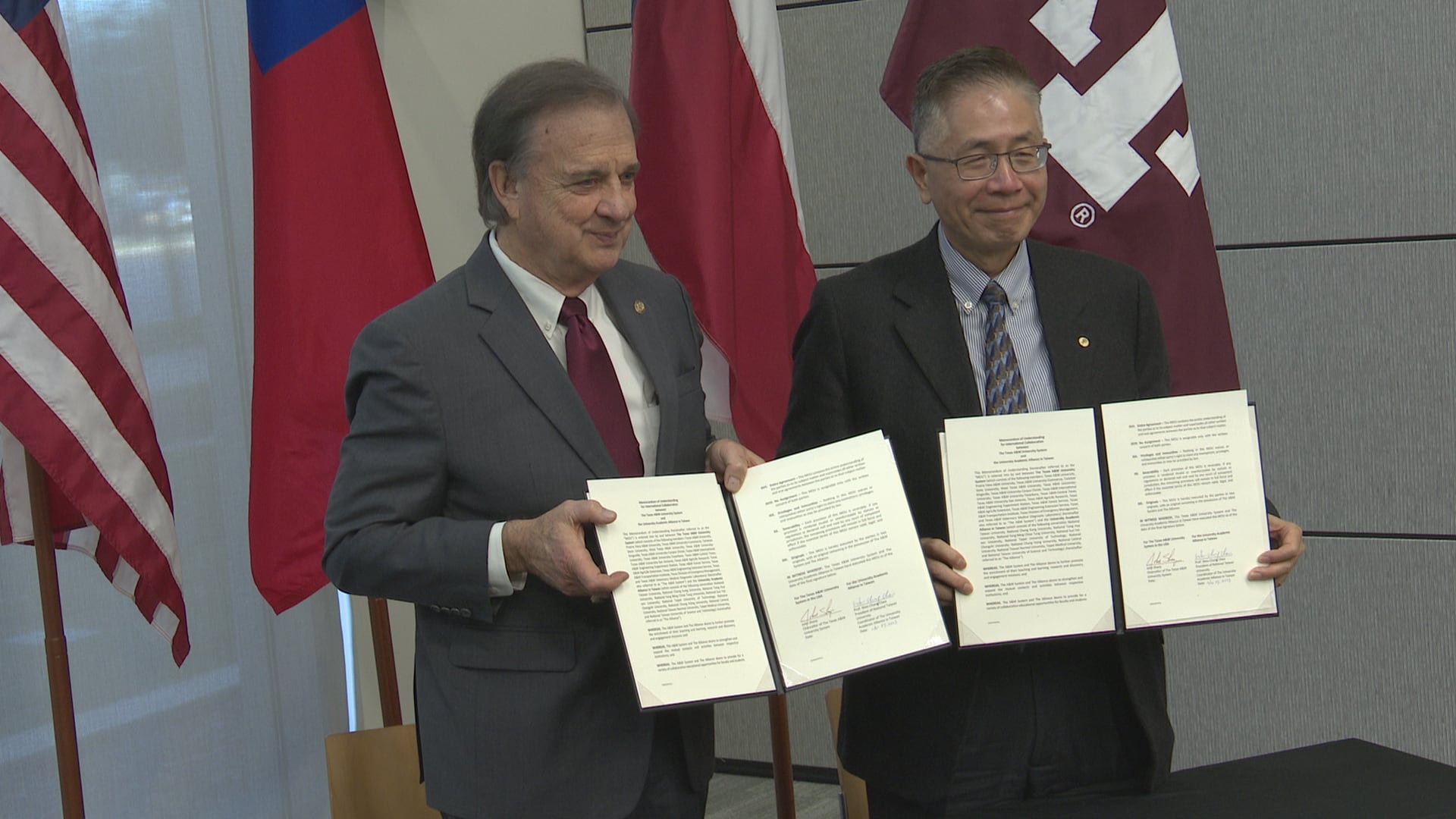Texas A&M University signs research agreement with University Academic Alliance in Taiwan
TEXAS A&M UNIVERSITY, Texas (KBTX) – The Texas A&M University System and the University Academic Alliance in Taiwan signed a research and student exchange program agreement during a press conference Monday.
The agreement, which covers five years, opens the door for academic collaboration between the two organizations, particularly in the areas of semiconductor design and manufacturing.
“Taiwan is a very strong, well-known, historic leader in the manufacturing of semiconductors and has been a partner with US industry in the production of chips,” David Staack, Associate Vice Chancellor for Research at Texas A&M, said.
Texas A&M Chancellor John Sharp said the partnership is a “win-win” for both academic institutions.
All major United States defense systems are reliant on semiconductors to perform their duties, making it a vital national security topic, according to the Center for Strategic and International Studies.
In May of 2023, the university announced the creation of the Texas A&M Semiconductor Institute, with the goal of strengthening semiconductor design and manufacturing capabilities in the United States following the passage of semiconductor-related legislation.
The research institute will be located at the Texas A&M RELLIS Campus.
“For us, they are the world’s experts on semiconductors with the CHIPS Act and the Texas CHIPS Act we’re moving into that space very rapidly,” Sharp said.
Following the press conference, the two university systems met to discuss how collaboration will unfold moving forward. University officials say they’re excited to share both knowledge and culture with the University Academic Alliance.
“That opened up for a student from Texas A&M to have an opportunity to look around and learn something,” Dr. Jing-Yang Jou, President of National Central University in Taiwan, said.
Dr. Jou said student exchange programs and internships will soon be available as discussions progress. The eventual plan, according to Staack, is to allow students to earn credit through participating in the programs.
“Finding a way to have students engaged in research, students engaged in programs that share our cultures, share our knowledge is very important,” Staack said.
They hope the partnership will create opportunities for international innovation in semiconductor design and manufacturing. Staack said that working with Taiwan will build strong global relationships while also helping to grow the semiconductor manufacturing industry in the United States.
“They’re a good way for us to engage with kind of a like-minded democracy in these areas,” Staack said.







